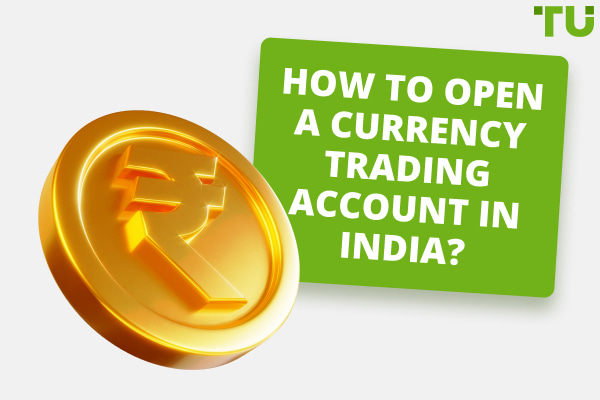How to Begin Forex Trading From Home in India?
Here are the steps to start Forex trading from home in India:
Step 1 – Open a currency trading account.
Step 2 – Submit KYC documents.
Step 3 – Choose a currency pair.
Step 4 – Understand the quote.
Step 5 – Take a position.
Step 6 – Develop and follow a trading plan.
Foreign exchange is a domain where currencies are bought and sold, offering a potential avenue for financial growth and wealth accumulation. In this review, the experts at TU will delve into the foundational reference for those in India who wish to start Forex trading from home, providing essential insights and step-by-step guidance on the process.
What is Forex trading?
Forex trading, often referred to as FX trading, is derived from 'foreign exchange.' At its core, it involves the exchange of one currency for another. This exchange serves diverse purposes, from facilitating international trade and supporting tourism to meeting commercial needs.
Chances are you've engaged in Forex transactions without even realizing it, perhaps when buying foreign products or converting currency during overseas trips. However, in the context of commercial trading, Forex is primarily driven by the pursuit of profit. Traders aim to capitalize on the fluctuations in currency prices, effectively buying low and selling high.
The Forex market stands out for its sheer volume of daily transactions, resulting in remarkable price volatility. While this volatility presents opportunities for substantial gains, it also introduces an element of risk. It's this delicate balance between reward and risk that makes the Forex market so intriguing.
Forex traders employ a variety of strategies, often grounded in technical analysis. These strategies may involve tracking patterns like breakouts and moving averages to refine their trading approach. For those with a longer investment horizon and greater capital, trading based on fundamental analysis or exploring carry trades can be profitable avenues to explore. In essence, Forex trading offers a dynamic and potentially rewarding arena for those willing to navigate its intricacies.
Rules and Regulation
Licensing in India
In India, brokers are regulated by the Reserve Bank of India (RBI) and the Securities and Exchange Board of India (SEBI). The former supervises foreign currency and the latter controls the stock market. The conditions for obtaining a license are: sufficient capital, a detailed business plan, compliance with rules and regulations, professional qualifications of key employees, and a professional reputation of the applicant.
Investor protection in India
To resolve disputes, traders can approach the RBI and SEBI that prevent fraud and dishonest activity in the securities market.
Taxation in India
Traders in India are subject to two primary types of taxes: direct and indirect. Direct taxes include a 5%-30% income tax. Capital gains tax is 15% for short-term profits and 10% for long-term ones. Trading income under 2.5 lakhs of Indian rupees is not taxable.
How to start a Forex trading business from home in India?
Starting a Forex trading business from the comfort of your home in India involves several key steps:
Step 1 – Open a currency trading account
Begin by selecting a reputable Forex trading broker platform and opening a currency trading account. In India, having this account is essential for Forex trading. Many brokers offer a two-in-one account, combining both trading and a Demat account for convenience.
Step 2 – Submit KYC documents
Complete the Know Your Customer (KYC) process by submitting necessary documents. These typically include proof of identity, address, income, and bank account details. After submitting your documents, the Forex trading platform will review your application, and you'll receive notification of approval or rejection.
Step 3 – Choose a currency pair
Currency trading occurs in pairs, and beginners often start with major currency pairs. However, if you're willing and have sufficient funds, you can trade any currency pair of your choice from those allowed for trading in India.
Step 4 – Understand the quote
When trading Forex, you'll encounter two prices: the bid and ask prices. It's crucial to analyze these prices correctly. The first price represents buying a currency, while the second price is for selling a currency.
Step 5 – Take a position
Thoroughly analyze market movements and make an informed decision. Accurate forecasting of currency movements is a fundamental aspect of Forex trading. For instance, if you anticipate the Indian Rupee (INR) strengthening against the US Dollar (USD), you may consider buying INR to capitalize on potential profits.
Step 6 – Develop and follow a trading plan
Consistently develop and adhere to a flexible trading plan. Your trading plan should outline your objectives, strategies, trading rules, and criteria. It serves as a guide to maintain discipline, focus, and organization in your trading activities.
Things to keep in mind before Forex trading in India
Before engaging in Forex trading from India, there are several crucial factors to bear in mind:
Currency pairs
Forex trading revolves around currency pairs, involving the exchange of one currency for another. Major currencies like the US dollar (USD), Euro (EUR), British pound (GBP), and Japanese yen (JPY) are commonly traded, though the options available for Indian traders are limited. Traders aim to predict the direction of exchange rates between these currency pairs.
Forex trading platforms
Forex trading is facilitated through various online platforms offered by authorized brokers, and in India, all brokers must be regulated by SEBI and RBI. Most reputed brokers provide traders with real-time market data, charts, technical analysis tools, and the ability to execute trades efficiently.
Regulations and compliance
In India, Forex trading is subject to regulation by the Reserve Bank of India (RBI) and the Securities and Exchange Board of India (SEBI). Indian residents can engage in Forex trading exclusively through authorized brokers who adhere to regulatory guidelines. It is crucial to select a reputable and licensed broker to ensure fund security and compliance with regulations.
Account types
Forex brokers provide different types of trading accounts, including demo accounts for practice and live accounts for actual trading. Opening a live trading account typically involves a minimum deposit, and traders can choose from various account types that align with their trading preferences and available capital.
Risk management
Forex trading carries inherent risks, including the potential for financial losses. It is imperative for traders to possess a solid grasp of risk management techniques, such as implementing stop-loss orders, utilizing appropriate position sizing, and diversifying their trading portfolio to mitigate potential losses.
Education and analysis
Achieving success in Forex trading demands knowledge and skill. Traders should invest time in learning about fundamental and technical analysis, understanding market trends, and staying informed about economic indicators that can influence currency movements. Leveraging educational resources, participating in webinars, and staying updated with market news are essential steps toward becoming a proficient Forex trader.
Practice and strategy
Prior to committing real capital, it is advisable for traders to practice with demo accounts. This provides an opportunity to become familiar with the trading platform, experiment with various strategies, and gain practical experience without exposing their invested capital to risk.
Regulation for Forex in India
Forex trading in India is subject to stringent regulatory oversight by two key authorities.
Reserve Bank of India (RBI)
The RBI plays a pivotal role in regulating Forex trading within the country. It oversees and monitors the exchange and trading of foreign currencies. Forex transactions can be conducted through authorized electronic trading platforms (ETPs) or recognized stock exchanges like the National Stock Exchange of India Ltd. (NSE), BSE Ltd. (BSE), and Metropolitan Stock Exchange of India Ltd. (MSE).
Securities Exchange Board of India (SEBI)
SEBI also holds regulatory authority over Forex trading in India. It mandates that resident Indians can engage in the buying and selling of Forex derivatives solely through approved brokers operating on authorized exchanges. These brokers adhere to SEBI's guidelines to ensure transparency and compliance.
Legal framework and penalties
It's essential to note that Forex trading platforms not authorized by the RBI are considered illegal in India. Those who operate such unauthorized platforms can face penal action under the Foreign Exchange Management Act, 1999, and the Prevention of Money Laundering Act, 2002. Additionally, Indian citizens are permitted to trade only in currency pairs paired against the Indian Rupee (INR) and some majors not fulfilling this criteria.
Prohibition on binary options
Forex trading is limited to currency pairs, and trading in binary options is explicitly disallowed under the provisions of the Foreign Exchange Management Act. To engage in Forex trading within India, individuals must partner with authorized brokers who operate in compliance with SEBI and RBI regulations. This ensures a legal and secure trading environment for residents of the country.
Best time to trade Forex in India
While Forex trading in India is accessible 24 hours a day, Monday through Friday, there are specific times that offer more favorable conditions for traders. The key to successful Forex trading is engaging in the market when it's most active. Active market periods typically provide tighter spreads, higher trading volumes, and increased profit potential.
The most opportune times for Forex trading in India often coincide with the overlap of two major trading sessions, particularly the European and North American Sessions. During these periods, a substantial number of buyers and sellers participate in currency trading, creating a dynamic market environment.
To help you navigate the optimal trading times, consider the following global Forex exchange timings in Indian Standard Time (IST), along with the most actively traded currency pairs for each session, as per the Traders Union analysts:
Tokyo (Asian Session): 3:30 am to 12:30 pm IST
Sydney (Pacific Session): 4:30 am to 2:30 pm IST
London (European Session): 1:30 pm to 10:30 pm IST
New York (North American Session): 6:30 pm to 3:30 am IST
Who can trade in the Forex markets?
Just like anywhere else in the world, the Indian Forex market is also open to various types of participants, each with their own distinct objectives.
Hedgers
Hedgers use the Forex market to mitigate the risks associated with adverse exchange rate fluctuations. Rather than aiming for profits, their primary goal is to safeguard against currency-related risks. Hedgers often include entities such as importers, exporters, central banks, commercial banks, and corporations.
Speculators
Speculators participate in the Forex market with the sole intention of generating profits. They do not carry any inherent foreign exchange risk but instead engage in buying and selling currency derivatives to capitalize on exchange rate movements. Speculators are driven by the potential for financial gain.
Arbitrageurs
Arbitrageurs specialize in exploiting price disparities for the same currency derivative across different exchanges. Their strategy involves purchasing the derivative at a lower price on one exchange and selling it at a higher price on another. Arbitrageurs are known for their quick profit-making abilities and typically avoid holding long positions in the market.
Forex terms that you should know
Pip
In Forex trading, a "pip" stands for the smallest price movement in a currency pair. These pairs are typically quoted to the fourth decimal point. For example, if the exchange rate of USD/INR moves from 74.6535 to 74.6545, it represents a rise of 10 pips.
Lot size
The "lot size" refers to the total number of currency units you are buying or selling in a single trade. While the standard lot size is 100,000 units, you have the flexibility to trade smaller units to match your risk tolerance and capital.
Orders
An "order" is the instruction you provide to execute a trade. For instance, if you wish to purchase 100 USD/INR, you would place a buy order. Conversely, if you intend to sell 100 USD/INR, you'd use a sell order. There are various order types designed to help you manage potential losses and maximize profits.
Margin calls
When your trade positions require additional funding to be maintained, your online broker may issue a "margin call." Monitoring your account for margin calls is crucial to prevent further losses.
Leverage
"Leverage" allows you to control larger positions with a relatively small amount of capital, known as margin. While it can amplify your potential profits, it also increases the level of risk, so it's important to use leverage cautiously and understand its implications fully.
Pros and cons of Forex trading
👍 Pros
• Cost-effective
Forex trading is known for its affordability. Through discount brokers, the transaction costs are generally low, as brokers primarily making money through smaller spreads (the difference between buying and selling prices).
• Decentralization
Applicable to Forex markets across the globe and unlike stock markets, there's no central exchange in Forex. It operates 24/5 across various financial centers worldwide, making it accessible at nearly any time.
• Diverse currency pairs
Forex offers a wide range of currency pairs to trade, allowing you to select combinations that align with your trading strategies and objectives.
• Ease of trading
The Forex market is user-friendly, with trading platforms and resources readily available. Novice traders can access educational materials and demo accounts to gain experience.
👎 Cons
• Lack of transparency
The Forex market lacks the transparency of centralized exchanges. Price determination can be influenced by various factors, including geopolitical events, which may not always be evident.
• Complex price determination
Forex prices are influenced by a multitude of variables, including economic indicators, interest rates, political stability, and more. Understanding these factors and their impact on currency values can be intricate.
• High risk and leverage
Forex trading involves a high level of risk, particularly due to the use of leverage. While leverage amplifies potential profits, it also magnifies losses, making risk management critical.
Best Forex brokers 2024


FAQs
How can I legally start Forex trading in India?
To legally start Forex trading in India, you must open an account with an authorized Forex broker and adhere to RBI and SEBI regulations.
How much money is needed to start Forex trading in India?
The minimum deposit in a trading account ranges from ₹10,000 to ₹2,00,000, depending on the broker and type of account.
How to start Forex trading from home?
To start Forex trading from home, you need to select a reputable Forex broker, open a trading account, complete the KYC process, choose currency pairs, and develop a trading plan.
Is online Forex trading legal in India?
Yes, online Forex trading is legal in India, but it must be done through authorized brokers following RBI and SEBI regulations.
Team that worked on the article
Chinmay Soni is a financial analyst with more than 5 years of experience in working with stocks, Forex, derivatives, and other assets. As a founder of a boutique research firm and an active researcher, he covers various industries and fields, providing insights backed by statistical data. He is also an educator in the field of finance and technology.
As an author for Traders Union, he contributes his deep analytical insights on various topics, taking into account various aspects.
Dr. BJ Johnson is a PhD in English Language and an editor with over 15 years of experience. He earned his degree in English Language in the U.S and the UK. In 2020, Dr. Johnson joined the Traders Union team. Since then, he has created over 100 exclusive articles and edited over 300 articles of other authors.
Mirjan Hipolito is a journalist and news editor at Traders Union. She is an expert crypto writer with five years of experience in the financial markets. Her specialties are daily market news, price predictions, and Initial Coin Offerings (ICO).











